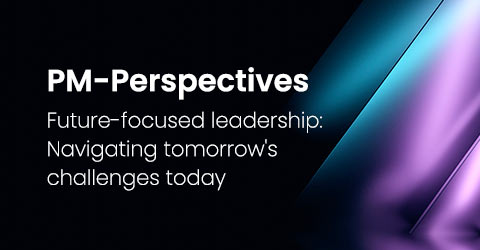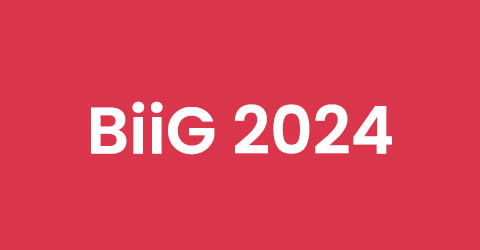An underrated relationship: the dynamics of benefits and change

Change management and the change manager role are critical – but often neglected – components of effective benefits realisation. Here Dr Elissa Farrow, consultant and PM-Partners training facilitator, outlines the relationship between benefits and change and how to ensure this integration occurs.
Did you know that successful benefits realisation is directly related to ensuring that people use the new capabilities designed by project and programme teams? To do that we need to ensure that all people impacted by the project or programme know what the change entails, are ready for it, and are ideally part of the design and deployment approach. This is where effective change management – specifically the change manager role – can make a significant difference.
The role of change and project managers
While the project manager focuses on delivering the capability, managing the budget, time, cost, quality and resources, the change manager works alongside the project manager and focuses on the human dynamic aspects of the change.
The change manager’s role has shifted over time. There is now greater awareness that the change manager is a facilitator and enabler of change (Change Management Institute, 2022). Change and project managers who understand their combined contribution to benefits realisation and keep the benefits of the change at the heart of the design approach, are worth a lot to leaders and managers who need to create the right environment for individual and collective adaptation (Farrow, 2020).
Organisations become more benefits-focused in more economically challenging times, particularly where resources may be reduced. In this scenario, organisations need to justify more than ever before why one project is more important than another. It is not just the financial cost of the project that is being assessed, but what return is expected to be received from that investment (be it cashable or non-cashable) (Jenner, 2014).
Benefits link to the adaptation process
Benefits that are identified in the beginning of a project are, in most cases, linked to people changing their behaviour and accepting new ways of working. In the case of system or process automation, benefits sought will relate to how we use the time saved as a consequence of people no longer being central to the process. These benefits may include:
- Non-cashable or transferring cashable benefits from staff being reallocated to new product streams or value adding work.
- Cashable benefit from staff reduction (redundancy).
- Cashable benefit from storage, floor or office space leasing reductions.
- Non-cashable benefit due to avoidance or reduction of risk to worker safety (depending on industry).
- Cashable benefit due to greater product throughput or 24/7 delivery.
Each of the above benefits relies on an appropriate change management approach. Return on investment will only come if the organisation leverages the new capability from the project. A change manager, or someone with a commitment to the people side of the change process, is a key resource to support people in:
– getting ready for the change
– working successfully in the new way of doing things
– successfully transitioning to a new role or phase of their career (if appropriate).
A case for change
Imagine a project where the product is created by a specialist team of mainly external contractors who get occasional input from the future end users of the product. The change side is relatively silent. The expectation is that ‘the business’ will do it – the project manager is purely focused on technical delivery and the end date. Change is not in the business case as a costed or resourced line item. Then suddenly, someone says, “[insert expletive], people are not interested in using our product, they don’t know how, they are very comfortable in the old ways and not interested in changing.”
The result of all this? Take up will be slower than thought, or maybe not even happen. The business case cost/benefit ratio has been eroded and the project that was once the flagship is now an ugly memory.
This scenario sadly still happens today and can be overcome by keeping the end benefits and adaptive process in mind from the early conceptual stages of the project. Change management includes both planned and dynamic processes and involves communication, engagement, coaching, learning and organisational development, readiness assessments and impact analysis.
So, to summarise, the easiest way to start the melding of change and benefits is to invite ‘people change’ representatives to benefits mapping and realisation planning. These specialists in human dynamics can offer value by:
- bringing a necessary validation role into benefits identification and quantification processes
- ensuring that benefits are grounded in the reality of what it will take to shift people to new phases and stages of awareness and action
- supporting those who may not see the benefits from the change.
The most important point is to understand that benefits will only emerge when the product design is of quality and the change approach fit for purpose. With luck, the original estimates are also accurate and linked to achieving the strategic intent of the organisation. Easy right?
To find out more about achieving successful benefits realisation, or lifting your benefits management skills, contact the experts at PM-Partners, or call 1300 70 13 14 today.
References:
Change Management Institute., (2022) The Effective Change Manager: The Change Management Body of Knowledge (Second Edition), ISBN978-1-925171-02-0.
Farrow, E,. (2021) Organisational Adaptation for Artificial Intelligence Futures: Key Principles for Leaders from the Futurists Perspective. In Mengel, T (Ed) Leadership for the Future, Cambridge Scholars Publishing: Lady Stephenson Library, Newcastle upon Tyne, United Kingdom.
Jenner, S. (2014). Managing Benefits: Optimizing the Return from Investments. Second ed. TSO, Norwich.

About The Author
Dr Elissa Farrow
Consultant and PM-Partners training facilitator
Dr Elissa Farrow is a professional consultant, facilitator and researcher with both public, community and private sector experience spanning over the last 27 years. Her strengths lie in research, change and complex organisational portfolio, programme and project management. Elissa has established portfolio offices, centres of excellence and customised delivery and adaption approaches. She has grown the maturity of organisations through her people place centred advisory, coaching and facilitation style.








